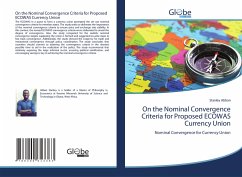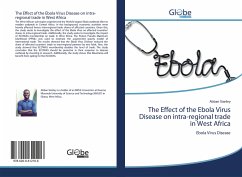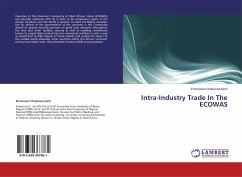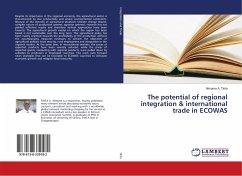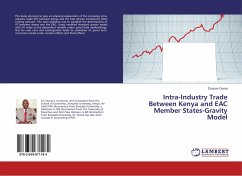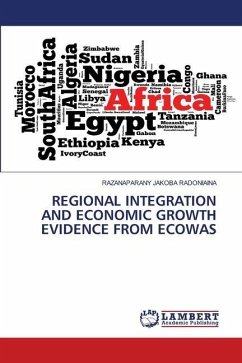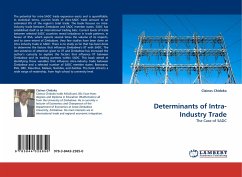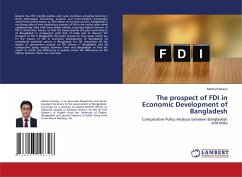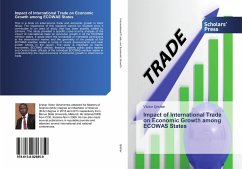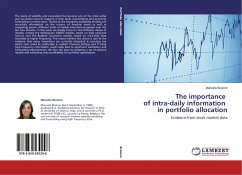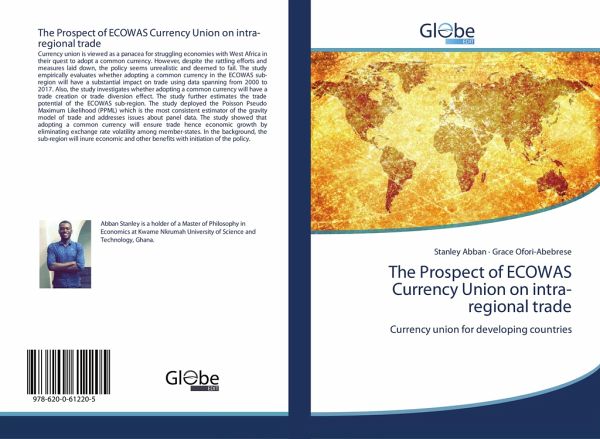
The Prospect of ECOWAS Currency Union on intra-regional trade
Currency union for developing countries
Versandkostenfrei!
Versandfertig in 1-2 Wochen
24,99 €
inkl. MwSt.

PAYBACK Punkte
12 °P sammeln!
Currency union is viewed as a panacea for struggling economies with West Africa in their quest to adopt a common currency. However, despite the rattling efforts and measures laid down, the policy seems unrealistic and deemed to fail. The study empirically evaluates whether adopting a common currency in the ECOWAS sub-region will have a substantial impact on trade using data spanning from 2000 to 2017. Also, the study investigates whether adopting a common currency will have a trade creation or trade diversion effect. The study further estimates the trade potential of the ECOWAS sub-region. The...
Currency union is viewed as a panacea for struggling economies with West Africa in their quest to adopt a common currency. However, despite the rattling efforts and measures laid down, the policy seems unrealistic and deemed to fail. The study empirically evaluates whether adopting a common currency in the ECOWAS sub-region will have a substantial impact on trade using data spanning from 2000 to 2017. Also, the study investigates whether adopting a common currency will have a trade creation or trade diversion effect. The study further estimates the trade potential of the ECOWAS sub-region. The study deployed the Poisson Pseudo Maximum Likelihood (PPML) which is the most consistent estimator of the gravity model of trade and addresses issues about panel data. The study showed that adopting a common currency will ensure trade hence economic growth by eliminating exchange rate volatility among member-states. In the background, the sub-region will inure economic and other benefits with initiation of the policy.



